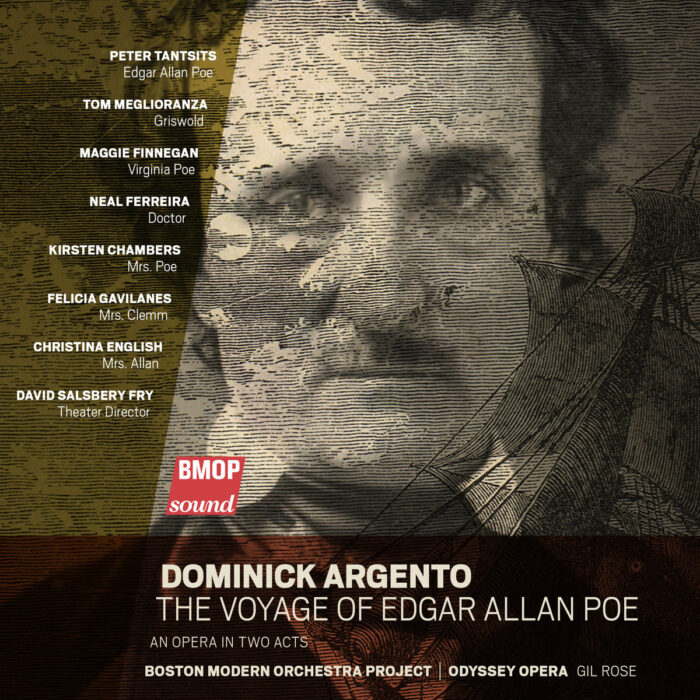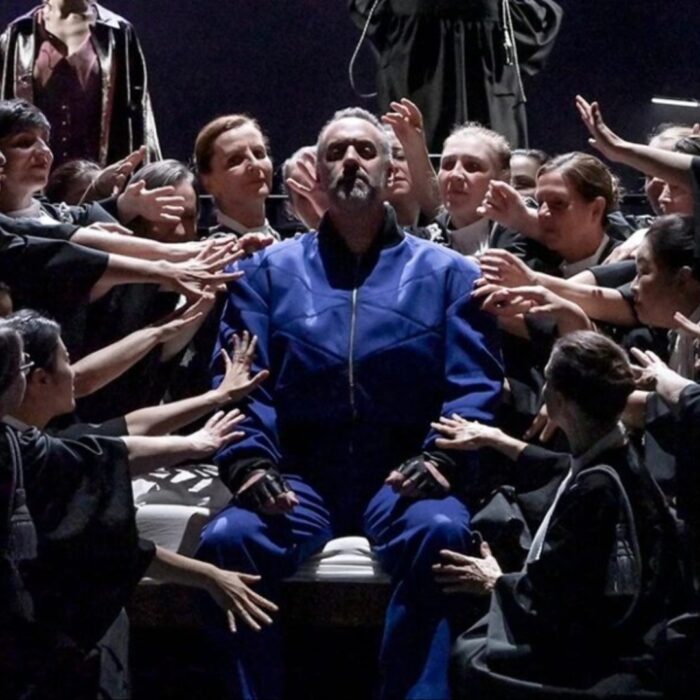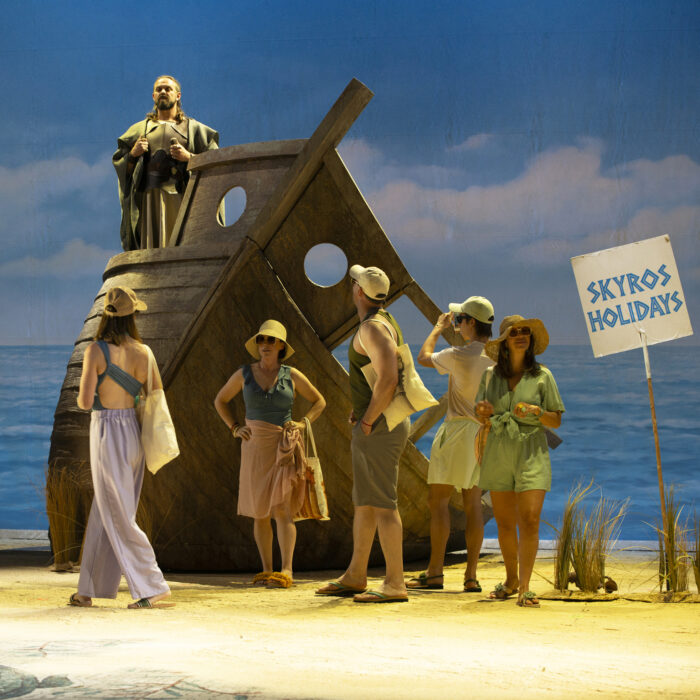
Opera Holland Park Festival 2024 Review: Tosca
Solid ‘Tosca’ Revival Fires Up Festival’s Opening Night
By Mahima Macchione(Photo credit: Ali Wright)
Whatever your views on Puccini, “Tosca” always draws a crowd. In a UK opera landscape mired by cuts and ever-tightening budgets, it is reassuring to see an opera festival that continues to stand on its own two feet, irrespective of Arts Council funding (or perhaps more accurately lack thereof). A full house then, as it was at the opening night of “Tosca” – and of the festival – is in and of itself a major triumph. A timely reminder of audiences’ historical and everlasting love for Puccini, in the year that marks the centenary of his death.
Australian-born director Stephen Barlow takes the opera to the 1960s, more specifically to Rome in that legendary year, 1968. First staged at Holland Park in 2008, this is a revival that brings back from the dead a trend that took over anglophone theatres in the last decade or so, of updating and placing works in around the mid-century – the 1950s were especially voguish. The retro design by Yannis Thavoris is both handsome and cute, and places pop-culture centre stage.
The street walls are plastered with posters of Italy’s Democrazia Cristiana, while the iconic Cinquecento adds a touch of Italian automotive flair to the period. Here, Palazzo Farnese becomes Trattoria Farnese, where rough mafia-type characters – think Scarpia and his cronies – choose to hang out. Given this is the year of revolution, the production also inevitably includes some street protests, from those wanting to push the corrupt Scarpia out of power. The fact that the 1960s were the golden age of Italian cinema, though, did not seem to come into this particular operatic equation – there were no references or allusions to be seen. While some might embrace the sheer visual appeal of these sorts of updated stagings, it does raise questions about how it actually connects to Puccini’s work.
The cast, though, made up for any hesitations one might have had. Returning to the title role was South African soprano Amanda Echalaz, whose international career was launched at Holland Park with the first staging of this production 16 years ago. She’s in no shortage of experience, having sung the role around the world since and brings with her the corresponding dramatic presence and the lyricism required for the part. With a big voice that does wonders in the festival’s open stage, her singing was both touching and powerful, surely reaching beyond the temporary marquee and well into the park – it would have delighted passers-by, except the heavy rain meant there probably were none around. Deep chest notes and a soaring top made for satisfying listening, and “Vissi d’arte” proved the usual showstopper. She did miss some of the nuance in key moments, like the scorn in the climactic “Quest è il bacio di Tosca!” (“This is Tosca’s kiss”) as she stabbed Scarpia – but then again, how much in the part will you be when it’s 15 degrees celsius outside, the rain is pouring and the wind blowing, and you’re wearing a glamorous but sleeveless dress with a low back? (Things only improved once she got the diva’s fur coat out in Act three). Of course smoking was rife back in 1960s Italy, and her occasional smoking on stage also made for edgy viewing, cigarettes and smoke being right at the top of the opera singer’s blacklist. A different kind of virtuosic performance.
Her Mario Cavaradossi was the Portuguese-born José de Eça, making his Opera Holland Park debut. In this 1960s setting, he wasn’t the church painter we’re familiar with but a street artist, this time painting the blue-eyed Madonna on the pavement as pedestrians walked by. An impressive addition to the cast, Eça’s warm and bright timbre shone through and he sang beautifully throughout. His robust and heartfelt rendering of “E lucevan le stelle” was truly moving and, with a voice of significant stature, he was also very well cast for an open-air setting. This is definitely a tenor with a future.
Morgan Pearse’s baritone delivered a convincing and memorable Scarpia, which included a mafia-style stage entry donning a stylish 1960s suit-and-sunglasses look, firmly establishing his position for the rest of the performance as the infamous villain. He sang with remarkable strength, even if dramatically his Scarpia could at times have been darker. There was perceptive work too from OHP regular Ross Ramgobin as the Sacristan, and Edwin Kaye as a long-bearded fugitive Angelotti. Phillip Costovski as Spoletta and Alex Jones as Sciarrone, were also notable support acts. An absolute highlight of the evening though was 13-year-old Angelo Aninag’s utterly heavenly singing in his brief (all-too-brief) appearance as the Shepherd Boy at the beginning of Act three. Under Matthew Kofi Waldren, the City of London Sinfonia played with clarity, nuance and impeccable pace – yet another winner in a wet evening that saw the audience set alight.



